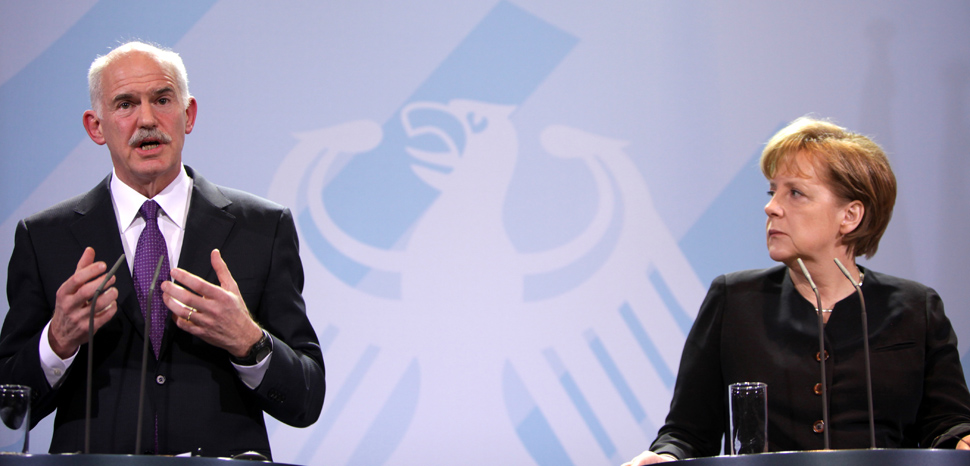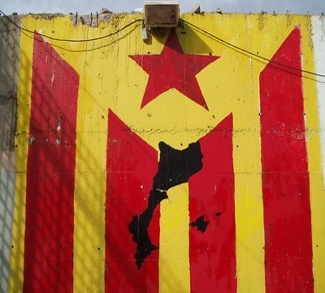After remaining an epic leader who is rightly regarded as Margret Thatcher of Germany, Angela Merkel’s withdrawal from her party’s leadership brings new uncertainties not only for the CDU, but also for its coalition partners. Horst Seehofer’s end as the leader of the CSU is near and Andrea Nahles is defending the SPD’s presidency from all sides. On October 29, German Chancellor Angela Merkel announced that she was stepping down as leader of the Christian Democratic Union (CDU), the dominant party in the ruling coalition.
Annegret Kramp-Karrenbauer, a 56-year-old career politician committed to the status quo, has been chosen to succeed Chancellor Angela Merkel as leader of Germany’s Christian Democratic Union (CDU). Kramp-Karrenbauer — often referred to as “Mini-Merkel” or “Merkel 2.0” because many view her as Merkel’s clone — won by just 35 votes (517 to 482) in a second-round run-off against her main opponent, the conservative businessman Friedrich Merz, at a CDU conference in Hamburg on December 7. Kramp-Karrenbauer’s extremely narrow victory (51.7% to 48.2%) reveals a party split down the middle.
But the post-Merkel era will be grappling with its fair share of challenges, many of which stem from political forces that loom large ahead of the next general elections scheduled for 2021. The rise of the AfD is a potential threat to German democracy, but it would be misleading to suggest that Germany is careening toward a populist abyss. The AfD has benefited in part from voter frustration with the two mainstream parties, the CDU and SPD, which traditionally alternated in government and opposition but have more recently ruled together in “grand coalitions.” This pattern has been especially harmful for the SPD, which ostensibly represents the working class but has lost touch with its ideology and base of support.
As a result, many voters, especially the younger generations, are now looking for different options. The AfD has received the most international media attention amid wider fears about right-wing nationalism, but the Green Party (Die Grünen) has also made tremendous gains and is positioned to become a powerhouse in German politics. The SPD will also need to reckon with its future direction. It has released a five-year plan that identifies pension and child care reforms, action on climate change, protection for tenants, and labor market reform as top priorities. The party wants to be seen as a home for working-class voters of both German and foreign origin. Olaf Scholz, the current vice chancellor and finance minister, is reportedly preparing to run for chancellor; however, to lead, the party must win back its base from the Greens and even from the AfD, which has also absorbed former SPD supporters.
Despite the CDU remaining the largest party, Klaus-Peter Willsch, the CDU’s representative in Hesse, told CNBC that recent regional elections there – which saw both the CDU and SPD bleeding support – were an indictment of the federal government and that no one is satisfied with the result. “This is a true hint that it is not a state policy but a federal policy problem we are facing — everyone could see our government is not performing,” he told CNBC’s Annette Weisbach on Sunday. “I hope that we have a new start. … They (the SPD) won a bit and we won a bit and no one is really happy with it.”
For Berlin, the result is another blow to an already fractious and fragile alliance. A similar election result was recorded in Bavarian state elections a few weeks ago and there is speculation that the SPD might jump ship as it sees voters punishing it for its association with the Merkel government.
Regarding foreign policy, there appears three candidates who are prone to developing different orientations. In the wake of renewed tensions between Russia and Ukraine, all three expressed a resigned antipathy toward Nord Stream 2, a gas pipeline in the making that will transport Russian gas through the Baltic Sea (not a good idea, but probably no longer stoppable). All three pledged to strengthen the European Union and work toward a better trans-Atlantic relationship.
Arguably, the other alternative for a swift change of government would be a spontaneous relaunch of the “Jamaica” coalition (between the CDU/CSU, FDP and the Greens). But this could well remain FDP leader Christian Lindner’s pipedream. Following a rift between CDU and SPD, why should the Greens not press for new elections? Incidentally, either way, such elections could easily result in a peculiar irony: the first German government between the CDU/CSU and the Greens – united under Chancellor Merz.
Given that the CDU has held Germany’s chancellorship for 29 of the past 36 years, there is every possibility that Annegret Kramp-Karrenbauer (AKK) will be the nation’s next elected leader. In combination with the Christian Social Union, its Bavarian sister party, the CDU commands the support of 30 per cent of the electorate, according to an opinion poll this week for the ARD network. According to the argument of political Swedish scientists Carl Dahlström and Anders Sundell, when a mainstream party moves toward a more restrictive immigration policy, this hurts the right-wing populist party. Colloquially, the logic is that the best way to stop the challenger is by stealing their thunder. Alternatively, the hypothesis also holds that when mainstream parties become more restrictive on immigration, it actually benefits the right-wing populist party. The logic here is that such a move increases the salience of the immigration issue and that ownership of the issue is difficult to wrest from the populists.
Sure, the AfD is not the Front National of the elder Le Pen’s era, and Germany is certainly not France, but anyone seeking to argue that Germany deviates from that fundamental logic should seriously consider the example of the recent Bavarian elections. While it was not the only factor in the Christian Social Union’s (CSU) disastrous result, Horst Seehofer’s efforts to appeal to immigration hardliners certainly did not present a promising precedent for campaigning in the rest of Germany. Whoever assumes the party’s leadership today, the road to a successful future for the CDU remains solidly Christian Democratic, not populist-lite.
Whoever is German chancellor, they will face some daunting foreign policy challenges over the long haul, as existing problems between the West and Russia cannot be solved by shooting from the hip. Forget about the idea of creating a common Greater European space from Lisbon to Vladivostok. The relationship can be progressively improved if Germany will stop seeing Russians as nothing but reluctant Europeans holding fast to their own standards and vision of the contemporary world. On the issue of Brexit, Angela Merkel said, “We have no intention of changing the Brexit deal.” That’s the common position of the 27 member states. So there’s no reason to expect any changes to come from the discussions. “Merkel rejected the accusation from the anti-EU far-right populist Alternative for Germany (AfD) party that the Brexit deal finalized in November “punished” Britain for leaving the EU.
And of course, beyond Europe, Merkel is rightly seen as having been a person who worked reasonably well with Putin, probably because she has had espoused an understanding of Russia’s concerns about an EU and NATO that comes right up to its borders. Nevertheless, while examining Merkel, one finds that internationally, she is seen in both European and global affairs as having been a stable, calming influence in the volatile age of Donald Trump, Vladimir Putin and Xi Jinping, who in their own ways have approached the global status quo with dissatisfaction. Compared to them, her approach has certainly been cautious, indeed often deliberately reactive. As for the future of the EU leadership in the post Merkel era, it seems obvious that Merkel would pass the EU’s helm to Macron, once seen as the European Obama. But during the year and a half of his presidency, he has shown that his ‘Jupiterian’ presidency is falling well short of expectations.
The opinions, beliefs, and viewpoints expressed by the authors are theirs alone and don’t reflect the official position of Geopoliticalmonitor.com or any other institution.




